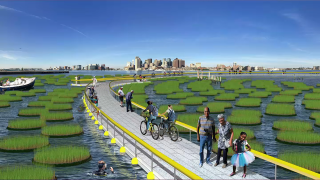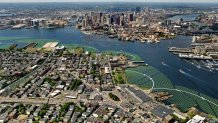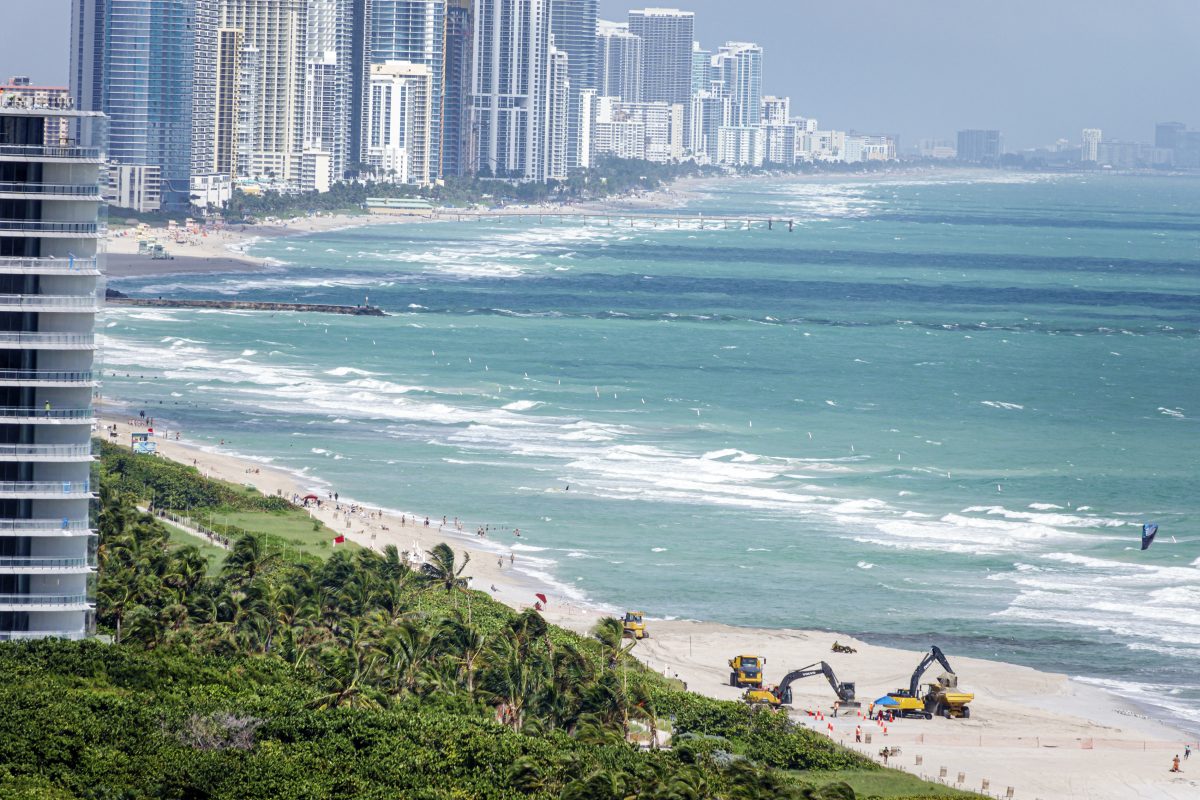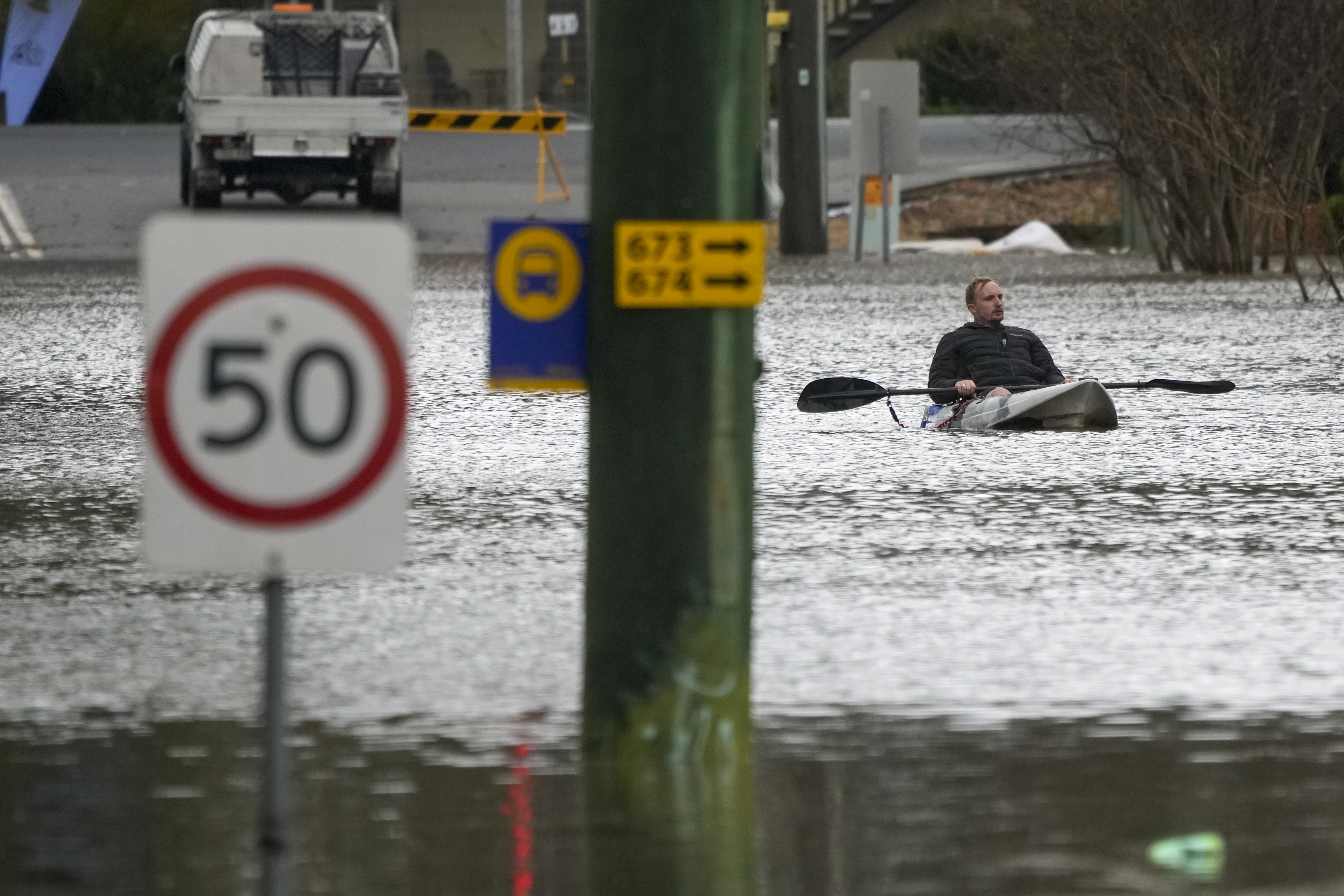
A proposed new floating park could let Bostonians walk and bike along the shoreline while simultaneously protecting the coast from flooding caused by climate change.
It's called the Emerald Tutu and it's a Green New Deal-era take on Frederick Law Olmsted's famed Emerald Necklace parks in the city. The winner of several awards already, though it's still in its testing phase, the Emerald Tutu could consist of several marsh mats floating just off the coast of East Boston, ringing it like a ballerina's tutu.

"The floating biomass, with marsh grass above the waterline and sinewy seaweed below, dampens incoming wave energy and retards storm surge in order to reduce crisis flooding ashore," the project's website says. "But it also draws people to down to the coastline in fair weather; its green landscapes and floating pathways enable public access to new waterfronts."
Get Boston local news, weather forecasts, lifestyle and entertainment stories to your inbox. Sign up for NBC Boston’s newsletters.
Coastal engineer Julia Hopkins, a Northeastern University professor who helps lead the project, spoke about it in a school publication this week. One of the floating mats was tested last year in East Boston and it attracted "so much vegetation," she said. "We didn't expect as much grass or seaweed to grow. We didn't realize it would colonize that easily and that much."
Another mat is being tested in Salem and another will be installed in Boston Harbor soon, Hopkins said, with a much larger pilot project possible later.
Adaptive infrastructure that absorbs tidal energy of rising seas is considered a crucial way to adjust to live as climate change makes the world hotter and wetter and threatens
East Boston and other coastal neighborhoods in the city already see some flooding, including on sunny days, and some new properties are being developed to adapt. Massachusetts had the third highest number of affordable housing units under threat of coastal flooding in the nation, according to a Climate Central analysis released last year.



